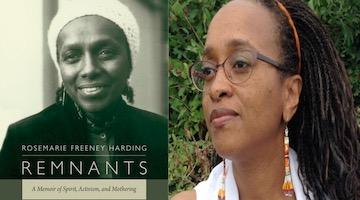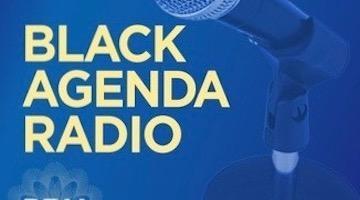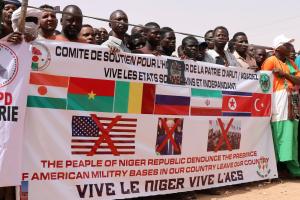This book offers lessons for people interested in organizing around health status, for building health systems.
“Who performs the dirty work or hard healthcare labor, and what does that ultimately mean for how social and political life is organized?”
In this series, we ask acclaimed authors to answer five questions about their book. This week’s featured author is Adia Benton. Benton is Assistant Professor of Anthropology at Northwestern University. Her book is HIV Exceptionalism: Development through Disease in Sierra Leone.
Roberto Sirvent: How can your book help BAR readers understand the current political and social climate?
Adia Benton:While this book is about the transnational HIV/AIDS industry as it settles in Freetown, Sierra Leone, it is also a story about international organizations, institutional power and hierarchies. What gives institutions their power? How do they achieve legitimacy? Who is “targeted" by the programs that form the basis of institutional existence? And a new question that my philosopher colleague, Robin James, following black feminists, is always asking: who cleans up? Who performs the work of care? I look at this issue obliquely, through the material culture of humanitarian and development aid work and how it is taken up locally by Freetonians who are invested in these related industries–as clients, as workers, as managers, as suppliers, and so on. To understand our current political and social climate, I think we need to ask these questions about interests, about who performs the dirty work or hard labor, and what that ultimately means for how social and political life is organized.How does it affect the means by which we engage with each other, the means by which we care for each other?
What do you hope activists and community organizers will take away from reading your book?
I’m not an organizer, but my friends who are, often talk about what they’re reading. From them, I’ve learned that this is how they figure out how things work, how others organize their efforts to institute change. They’re constantly reading and learning, developing the foundations for action. Many of the undergraduates who enroll in my courses plan to work in the fields of public health or international development. Some are also organizers and activists within their communities now. I guess I’m saying that I wrote this book with all of these kinds of learners in mind: how does aid work, how do people encounter these programs funded by development and health aid money from rich countries,how do they experience these programs and the relationships that stem from them? How have activists encountered this space as a space for change, a space *to* change? Somewhere in the footnotes I’ll reference how some friends and colleagues used ‘strategic essentialism' to help build health systems in poor countries, or in the main text, some of my interlocutors will talk about how they imagine their work as health activism – how they use their health status as the central organizing feature of their activist work. There are some ways that this activism is co-opted by and leveraged by official channels, but there is also a way that organizers and activists actively challenge state actors and donors and program logics, more generally. So this book, by showing all these perspectives, offers lessons for people interested in organizing around health status, for building health systems, in light of the deep inequalities in access to care, and the varying quality of care around the world.
We know readers will learn a lot from your book, but what do you hope readers will un-learn? In other words, is there a particular ideology you’re hoping to dismantle?
There are two groups I had in mind as I was writing this book: people who think they might want to be involved in development or other aid work in post-colonial societies like Sierra Leone; and those who are deep into that work and are interested in reflecting on what they’re doing. The first group tends to think: the intentions of aid work are great; critics are just leftie haters. Or: this motivation for aid work is great, but the implementation isn’t because “they” don’t understand the local context. I’m smart and can fix it by simply being critical and being attentive to local context. The second group might be thinking: okay, I’m already aware of the problems and critiques; how are we going to improve this to make life better for everyone? Or: I’m here trying to change the system from within/working myself out of a job. In any of these (perhaps overly simplified) cases, the aim of the book can’t simply be: “Here is everything that is wrong with this system.” When you’re having to coax folks to your side, or organize action around an ‘otherwise,’ you have to do more than criticize or critique; you have to use that deconstruction, that analysis, to help rethink and rebuild what it is that you want to see in the world. Part of my thinking when I was crafting the so-what in the conclusion – and frankly, for each chapter – was to constantly say to myself, “Okay, you’ve fully unpacked this or taken that apart; what does it leave for the people who want to do something, who want to change things?" I envision not incremental reform, but subversion of dominant paradigms related to developmentalism (i.e. there’s a height of civilization or economic development that poor countries can achieve through economic, political and social engineering) and humanitarianism (i.e. there’s a universal, shared humanity that forms the basis of social assistance). Is this realistic, I don’t know, but there are tools there. There are explanations of how things, at their bottom, work. I think developmentalism and humanitarianism, particularly as they are practiced by the US government and Britain -- I am less familiar with French, German and Japanese aid -- have inequality and racial hierarchy baked into them. I am in part also openly questioning these ideologies and their presumed basic goodness, but I am also suggesting our worldmaking ideologies must be fundamentally different.
Who are the intellectual heroes that inspire your work?
Sometimes I worry about having heroes because by definition, they must also have a tragic downfall. Or at least that’s what I learned in middle school literature classes. The people I think with lately are Christina Sharpe, Simone Browne and Keguro Macharia. I’ve been working on a book about the 2013-2016 West African Ebola epidemic, and their work has had me re-casting some of the theoretical underpinnings of the book in terms that resonate with the political work of black studies. Roughly, as an anthropologist of ‘global health,’ I am focusing on the forms of deracination mobilizing humanitarian action; the surveillance modalities of public health; and the political tensions or frottage arising in the relationships between care and containment. Most critics of global health are not leveraging the insights of black studies to think these issues for some reason, even though political questions of blackness have been central to humanitarian and global health projects. To use an expression from a biopolitics graduate seminar I recently led: I am now explicitly “thinking these problems ‘blackly.’”
But when I was writing HIV Exceptionalism, I was largely inspired by conversations I’d had with my friend, Paul Farmer, who was trained in the Latin American/ Caribbeanist and black and indigenous Marxist traditions within anthropology, social medicine and liberation theology; and two of his teachers, who were also teachers of mine and continue to be good friends, Byron Good and Mary-Jo DelVecchio Good. Lately, I’ve been thinking with fiction, film, music and poetry as well (some directly influence HIV Exceptionalism and more recent work): James Baldwin; Toni Morrison; Toni Cade Bambara; Marlon Riggs; Rage Against the Machine; and Adrienne Rich.
In what way does your book help us imagine new worlds?
This is a great question, and one that guides much of my teaching and writing: is another world possible? Is there an otherwise? My hope is that if I take specific cases and worked through them using the tools of anthropology, laid bare the nuts and bolts of the everyday, then maybe we could find these fulcrums or pivot points that would allow for change. For example, I analyzed one diagram that circulated in program reports. I kept seeing it when I was trying to figure out the origins of an initiative called, “Greater Involvement of People with AIDS.” I pored over official histories and perused the grey literature – basically UNAIDS and NGO reports. The diagram appears with different fonts and colors, but the content – a pyramid naming each ‘level’ of involvement’ remained the same. In the book, I followed through how such a diagram simplifies and essentializes the ‘involvement of people living with HIV/AIDS’ in a way that helps us to understand how people in programs conceptualize something that had otherwise been perceived as ‘organic’ and not inspired by donor money or ideas. Looking at how experts in this industry outlined the key building blocks of the GIPA concept helped me to think precisely about how something very ‘innocent,’ very technical is neither of these things; rather, following the social and political life of an object like this diagram, allows the analyst to follow how value and currency accrues to a specific idea, how it becomes something people recognize as a thing doing in the world, the meanings ascribed to it, the actions arising from these meanings. Once the analyst shows that, it’s time to think about how it might be otherwise. The question becomes: how do you enlarge the frame of reference for these ideas? How do you reframe or retool the ideas themselves? To whom are you accountable in doing so?
Roberto Sirvent is Professor of Political and Social Ethics at Hope International University in Fullerton, CA. He also serves as the Outreach and Mentoring Coordinator for thePolitical Theology Network. He is co-author, with fellow BAR contributor Danny Haiphong, of the new book, American Exceptionalism and American Innocence: A People’s History of Fake News—From the Revolutionary War to the War on Terror.
COMMENTS?
Please join the conversation on Black Agenda Report's Facebook page at http://facebook.com/blackagendareport
Or, you can comment by emailing us at comments@blackagendareport.com



















